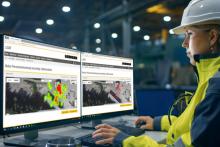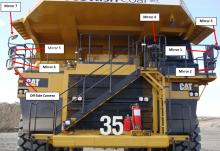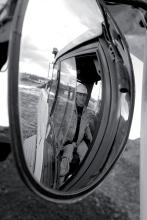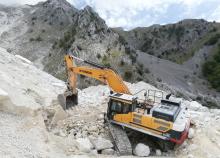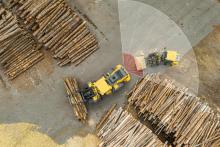The company has a 'zero harm' mindset based on three guiding principles: a belief that all injuries are avoidable; no repeats, with all necessary steps taken to learn from incidents and prevent recurrence, and robust, non-negotiable standards being rigorously applied business.
With continued improvements in safety in general, vehicle safety is a huge priority.
Designed for vehicles in any industry, Vision Techniques' 'VMS Reversing Radar warns drivers about reversing dangers, and actually applies the brakes itself if the warning signals are ignored.
It also enables users to set the radius in which the alarm goes off in, eradicating false alarms.
Although the Reversing Radar system is new, the relationship between the two companies is long established. Tarmac has been fitting Vision Techniques' safety equipment to its quarry sitevehicles for 15 years.
Currently, all the company's loading shovels are fitted with VMS, and all dump trucks are fitted with Sensor Vision, another Vision Techniques radar system.
The company says the results are tangible: the technology and safety systems provided by Vision Techniques have helped Tarmac to further reduce and avoid reversing accidents.
Stephen Ternent, district maintenance manager at Tarmac's North and Scotland division, said: "The Reversing Radar is helping us to eliminate reversing collisions, and its innovative sensors also minimises false alarms, which means we can still work efficiently."
Andrew Kendal, of Vision Techniques, said: "There are endless potentially dangerous scenarios which VMS reversing radar can prevent. It is a flexible solution to many vehicle safety and security fleet management issues."
The system detects the speed and direction of the vehicle and detects oncoming objects, only alarming when the vehicle gets too close to the object.
VMS radar is already used by many major organisations, including ERM,

